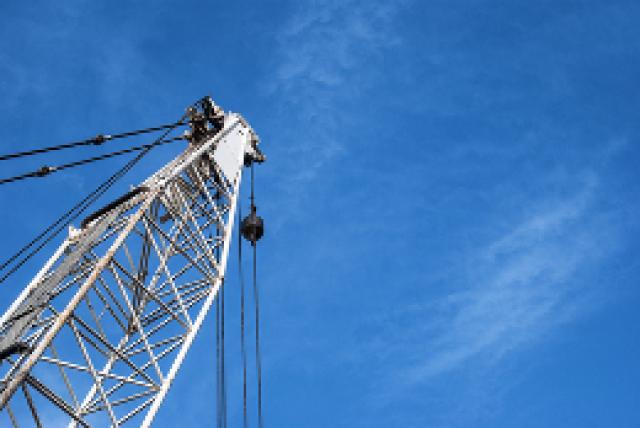
The UK government has unveiled the eagerly-anticipated findings from an independent study conducted by the British Geological Survey (BGS) concerning the potential volume of shale gas in northern England’s Bowland basin, with up to 1,300 Tcf (40 Tcm) of gas reserves believed to be in place.
Scientists from BGS significantly boosted the estimate for shale gas sources over an area covering 11 counties, with the 1,300 Tcf gas-in-place figure for the Bowland shale area more than double what was previously estimated. Britain consumed 2.76 Tcf of gas in 2012, according to BP statistical data, meaning that with a 10% recovery rate, the shale gas resources could potentially give the country independence from future gas imports from Europe.
If 130 Tcf could be extracted, it would mean the UK would get more gas from shale than has been produced from the UK North Sea to date. The UK produced 85.6 Tcf of gas between 1970 and 2012, according to the BP data.
However, there is still skepticism over the figures at this early stage, with so little drilling done and based on recent experience in other European countries such as Poland – where initial excitement over the country’s shale resources was tempered after early drilling suggested extraction would be more difficult that first expected and estimates of gas volumes in place were substantially downgraded.
The UK government was unsurprisingly upbeat on the report’s findings. “Today’s news from the [British] Geological Survey confirms 1,300 Tcf of shale resources, which is double [that of] previous estimates,” Chief Secretary to the Treasury Danny Alexander told Parliament. “Today this news from the geological society confirms the huge potential that shale gas has for the UK,” he said, according to Reuters. The measures would “kick-start the industry in a way that protects the environment and supports communities,” he added in a House of Commons statement.
UK Chancellor George Osborne has indicated there are likely to be tax incentives for shale gas developers, and there also are plans to pass on some of the benefits to local communities.
Companies already exploring for shale in the Bowland area in Lancashire include IGas, which has estimated it has between 15.1 Tcf and 172.3 Tcf of gas in place on its license area, and Cuadrilla, which recently partnered up with Centrica and believes there is 200 Tcf of gas in place in the area.
A year-long ban on drilling was recently lifted after the UK government imposed more stringent rules on fracing to reduce any potential earthquake or tremor risks.
The government believes the experience of the US shows shale gas in the UK could boost tax revenues, create jobs, reduce energy imports, and drive down household bills.
The BGS report paves the way for the UK’s Environment Agency to offer guidelines and permits for fracing projects more quickly and to set them to defined timetables in a further bid to encourage firms to invest.
In an interview with Sky News ahead of Alexander’s announcement, Osborne said that it was essential for Great Britain to make the most of its natural energy resources. “We want cheaper energy. We have gas under the ground in this country, and we have a way of getting it out. This country can’t be left behind by the rest of the world. Just saying no to a gas revolution that is taking place in places like the US and China would be a massive mistake.”
UK Energy Minister Michael Fallon added in a press statement, “Shale gas represents an exciting new potential energy resource for the UK and could play an important part in our energy mix. The next step for industry is to establish how much gas is technically and commercially recoverable.
“With the package announced today on planning, environmental regulations, and community benefits, it is clear that we want to encourage a shale industry that is safe and that doesn’t damage the environment,” he continued. “Development must be done in partnership with local people. We welcome the commitments from industry on community benefits.
“This will provide a welcome boost for communities [that] will host shale exploration and production as well as offering strong assurances that operators will engage with them and work to the highest health, safety, and environmental standards. From money off bills, playgrounds, sports halls, or regeneration schemes, people will see real and local advantages from shale gas production in their area,” he added.
The package of community benefits announced by the UK government in a press release, following the BGS report, included:
• A community engagement charter, setting out industry’s commitments to consult with communities at all stages, including in advance of planning permission applications;
• At the exploration stage, US $153,789 (£100,000) in “community benefits” will be provided per well site where fracing takes place;
• 1% of revenues at the production stage will be paid out to communities;
• Operators will publish evidence each year of how these commitments have been met; and
• This charter and offer to communities will be regularly reviewed as the industry develops and operators consult further with communities.
There are currently 176 licenses for onshore oil and gas exploration currently issued in the UK, with plans for a 14th onshore licensing round next year.
The BGS also is conducting further work to establish the amount of gas in Jurassic shales in the Weald basin of southern England later this year.
Contact the author, Mark Thomas, at mthomas@hartenergy.com.
Recommended Reading
EIA: E&P Dealmaking Activity Soars to $234 Billion in ‘23
2024-03-19 - Oil and gas E&Ps spent a collective $234 billion on corporate M&A and asset acquisitions in 2023, the most in more than a decade, the U.S. Energy Information Administration reported.
Stonepeak, Dominion Energy to Partner on Virginia Offshore Wind Project
2024-02-22 - Stonepeak will acquire a 50% interest in Dominion Energy’s offshore wind project, which is expected to be the largest offshore wind farm in the U.S.
E&P Highlights: Feb. 12, 2024
2024-02-12 - Here’s a roundup of the latest E&P headlines, including more hydrocarbons found offshore Namibia near the Venus discovery and a host of new contract awards.
The JF Petroleum Group Acquires General Contractor GE Goodson Service
2024-04-15 - Following the transaction, GE Goodson will operate as The JF Petroleum Group’s Midland branch on a go-forward basis.
US Proposes Second GoM Wind Lease Auction
2024-03-20 - Combined, the four proposed areas for offshore wind have the potential to power about 1.2 million homes if developed, according to the Interior Department.





